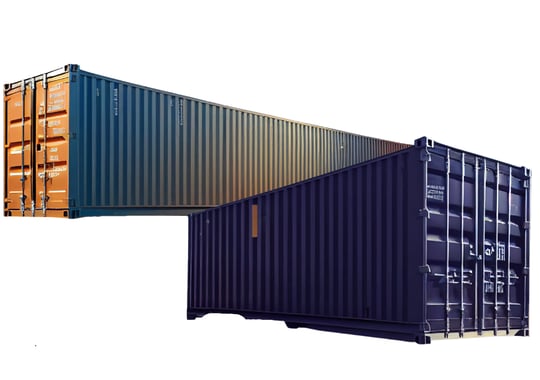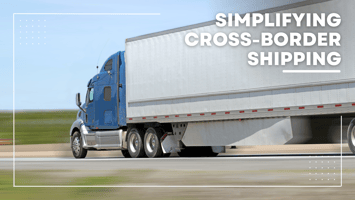LTL or FTL? When it comes to shipping and logistics, there's no one-size-fits-all answer. The key...
Shipping Solutions: Effective Ways To Reduce Unnecessary Storage and Detention Fees
It's important not to lose track of the importance of timely performance, amidst all the hustle and bustle of the modern-day business world. When it comes to shipping, it is essential to plan and prepare. If your cargo is delayed in transport, it can cause a problem and affect you financially. It's very easy to get caught in the trap of using detention, storage or demurrage fees to compensate for lost time. These hidden charges can add up quickly, and are a drag on your bottom line. Luckily, you can use a few smart solutions to help lower any detention or storage costs, or avoid them altogether.
.jpg?width=1920&height=1080&name=Blue%20Modern%20Design%20Project%20Proposal%20Presentation%20(5).jpg)
Detention and Storage Fees in LTL Shipping
LTL (Less-Than-Truckload) shipping can be a complex endeavor, leading to surprising charges at the end. Due to the complexity of LTL shipping, issues such as delays due to inaccurate documentation or paperwork, and any extra shipment handling, may present additional charges on the final invoice. In order to avoid transport issues which can lead to these unexpected charges, it is important to know how to prepare.
Delays are a challenge for both carriers and shippers. Carriers have a need to maximize their efficiency for their clients, and thus limit time at the ports. Shippers need to prioritize cost-efficient shipping practices, which can become difficult when there are added fees. In transport, a certain amount of time, or grace period, is given to shippers before they start to incur fees for their shipment not moving through to its destination. For shippers; warehouses, containers inside terminal grounds and the container yard are all subject to added charges after this initial “free” or grace period. These fees can become an obstacle to efficiency and management, making it imperative to avoid them whenever possible. The most effective way you can avoid any nasty fees and keep your business moving is by thinking ahead.
Detention Fees
When drivers must wait to move a load, there can be a detention fee added for shippers, for the time that is being wasted, since drivers are paid for moving freight. Because drivers have to abide by HOS regulation, delays can affect their driving ability for the day and their schedule, which can become a problem. If a driver arrives at a specified location and has to wait for unloading or loading, then detention charges would follow. Carriers incorporate detention fees as a way to encourage shippers to increase efficiency in their loading process.
Storage Fees
If a driver cannot deliver the freight to its location, then the carrier has to store the freight until delivery is possible, leading to charges for shippers. Goods can be stored for a number of reasons, such as facility closure, wrong destination address or the consignee being unable to receive the shipment. Warehouses or storage facilities can hold freight for a period of time that is considered free, after which the shipment begins to incur fees. Usually the grace period is 48 hours.
 What Causes Delays?
What Causes Delays?
Most often, delays incurring storage or detention fees happen due to documentation reasons, or miscommunication in the scheduling of shipment pickup and drop-off. When the consignee lacks awareness of the arrival time of the goods, they may be unable to arrange customs clearance or pick up, which can lead to delay. Any missing or improperly completed documents will also lead to a delay period of needing to mend the errors. In rare instances, there may be disputes or issues between consignee and shipper, which first need to be resolved, or there is a customs hold or exam on the cargo container itself.
Other shipment issues which can contribute to delays include:
- Port Congestion
- Delayed Payment
- Missing Or Forgetting The Deadline For Free Storage
- Customs Clearance Delay
How To Avoid Storage or Detention Fees
Careful Planning
The most efficient way to avoid extra fees for storage or detention is to plan early, and account for potential challenges along the way. Arranging pickup further in advance will ensure driver availability and clarity in schedule. In case of congestion issues, you should always have a backup plan in case one driver gets stuck or delayed. You should always have the contact information for brokers and carriers, in case of needing to address any issue.
Efficient Scheduling
In order to stay on track, you will want to dispatch your cargo as far in advance as you can, to allow the trucking company enough time to make the pickup or delivery. Your loading parties need to be ready for the process as well, scheduling the process keeping detention in mind. If you are aware that your cargo takes longer to load, then try to negotiate a deal in advance for more time or for your special handling needs.
Increase Communication
You will want to clearly share instructions for your shipment and its delivery with the carrier, driver and any other party involved. If your shipment requires any special handling or documentation, it is important to inform the parties handling your shipment.
Drivers should be given the appropriate documentation, and stay informed on any changes that may occur. You should always be confirming that a driver is assigned for pickup and available in your allotted timeframe. You must support the driver by providing them the right documentation and data, so that they can pickup or move the cargo with ease.
Stay Informed
The easiest way to avoid potential errors or delays is to stay informed on any port or customs regulations you may need to abide by. Different countries impose different rules, so researching ahead of time can help you stay in compliance. You will also want to know your routes, ports and cargo well enough to know how to minimize delays or down time, in the case of any issues arising.
Shippers will need to follow the shipping and customs status closely, so that there is awareness of any changes. In the case that you are needing storage, you can look into alternative storage options, which could be more affordable or suitable for your shipment. You will need to research the free time you have, and figure out whether you can comply with the outlined days of storage before fees occur, which requires a careful look at your transport contract.
Go For Early Customs Clearance
Always get your documents in order and ensure that nothing is missing or incorrect. It is important to check your customs invoice to ensure it has correct information, and that it matches the remainder of your paperwork. You can simplify the process by engaging in pre-clearance, where tracking allows you to see if a shipment has cleared customs before the driver even arrives at the border. If there are any issues, you can fix them before the driver reaches the border.
Seek Real-Time Tracking
It is always beneficial to work with parties that provide real-time tracking of your shipment, because it allows you to tackle any challenges on time. Drivers can access their PARS/PAPS data in real-time to know if they are cleared to cross, while you can maintain an eye on whether any delays or stoppages occur, and develop and alternative route.
By using Zipments, you can streamline customs clearance; with access to real-time PARS and PAPS tracking, efficient Customs Invoice forms, Duties and Fees calculation, a Customs Broker Directory and simplified communication between shipper, carrier and broker. All of your customs clearance needs are handled on one, easy to use platform, so you can avoid any delays and mishaps which can result in unnecessary fees.
Don’t let storage and detention fees become a burden on your business. To avoid extra charges, make sure your inbound and outbound shipments are properly prepared. Plan ahead: Stay informed of your shipments, keep them on track and avoid unnecessary charges. A little early effort can make the difference between delays and efficient transport.


.jpg?height=200&name=Black%20and%20Gold%20Modern%20Elegant%20Creative%20Portfolio%20Presentation%20(2).jpg)

-1.png?height=200&name=Brown%20Simple%20Tips%20Shoot%20Blog%20Banner%20(6)-1.png)